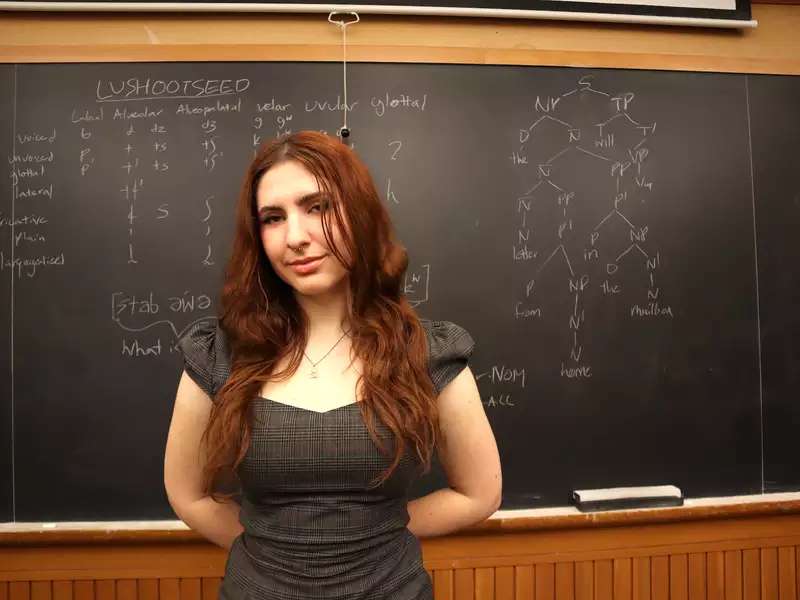The more time I spend researching renewable energy systems, the more I learn about how they offer a win-win solution for a planet — and the many people on it — in distress.
When I think about human-caused climate change, I find it important to view solutions such as mitigation and adaptation as inherently political challenges that must be examined within the current geopolitical landscape. In the summer of 2022, my passion for international relations and the field of political science expanded to include climate justice while working at an Israeli solar startup company, Gigawatt Global, that built solar grids in rural African communities.
It was there that I saw firsthand the meaningful socioeconomic impacts that renewable energy made on a local scale and grew interested in sustainable development as a means of helping marginalized communities by spurring political and economic development. I was also introduced to the scientific aspects of renewable energy while learning about international energy laws and policies.
My summer at Gigawatt Global inspired me to take Global Politics of Climate Change with professor of political science Kimberly Marten. This course played a pivotal role in my understanding of the synthesis of international relations and environmental justice. It also helped me affirm that I wanted to pursue the intersection of the two fields and to conduct a research project in a related subject: solar fields.
Laidlaw Research, Findings, and Success
My research project for the Laidlaw Scholars Leadership and Research Program examined solar nanogrids (SNG) as a means of alleviating poverty cycles and promoting sustainable energy development. I looked closely at the low electrification rates and inadequate power generation capacity in remote parts of Kenya. These are factors causing frequent blackouts that disrupt economic activities, productivity, and daily life for millions of African people — leaving marginalized communities with limited or no access to electricity, perpetuating poverty cycles, and hindering socioeconomic development.
From the successes of solar nanogrid projects in Kenya, I found that solar energy can alleviate poverty across the African continent, which has a high natural capacity for yielding solar energy. I conducted research using qualitative and quantitative data analysis on two case studies: Kenya as the primary and Nigeria as the secondary comparative case study.
Renewable energy is a pivotal element in creating valuable societal change in vulnerable areas.
I used surveys that were conducted among local residents, community project managers, and local government officials in Kenya to gather information on the SNG project’s impact. I obtained this information through a comprehensive review of existing literature, including peer-reviewed articles, preexisting surveys and fieldwork, and reports from international agencies.
I was also lucky enough to be able to speak with a project manager and a scientist on the ground in Uganda and Nigeria. I analyzed the data from interviews and surveys using thematic analysis — a method to understand qualitative data — which helped me to identify recurring themes, challenges, and success stories around the SNG project.
My findings were that the SNG method of instituting localized solar energy in African villages can be applied to other states in Africa and propel development, economic prosperity, and sustainability across communities. SNGs can help to create electricity, jobs, and educational opportunities — indicating that renewable energy is a pivotal element in creating valuable societal change in vulnerable areas.
To Zanzibar and Beyond
The most compelling part about being a Laidlaw scholar was the opportunity to craft a research plan that allowed me to explore my passion for climate change and sustainability from the angles of politics and international cooperation. The program has been the perfect outlet for me to conduct interdisciplinary research with SNGs because it provides not only the chance to do research but the chance to implement my research on renewables as a way to solve problems and build a better world. As part of Laidlaw’s unique second-summer fieldwork component, I plan to travel to Fiji next summer to work on a sustainable development initiative through the Leadership-in-Action program.
My interest in environmental advocacy and climate change action extends beyond renewable energy. As a research assistant for Malgosia Madajewicz’s coastal flooding project at the Columbia Climate School, I am conducting surveys among residents of different at-risk neighborhoods in Queens and Staten Island to obtain data that we will use to identify adaptation actions and provide data to the City for use in future policy and adaptation action.
As climate change causes sea levels to rise, densely populated coastal areas of New York City are increasingly vulnerable to flood surges, yet there is low awareness of this threat and the cost-benefit scale of adaptation actions among local residents. The objectives of this research are to help local residents use existing resources to adapt to flooding and to provide them with relevant information. The project fosters informed decision-making to promote sustainable livelihoods and is an example of the kind of environmental advocacy necessary to equip urban coastal residents with means of resilience to climate change risks.





